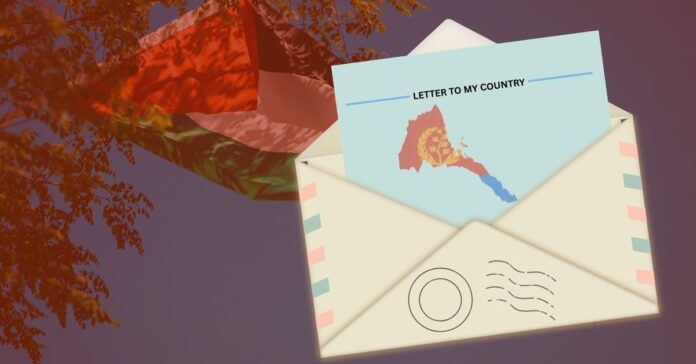Eritrea in an Italian Satire Show
A few nights ago, during a well-known Italian satire show, a comedian joked: “The only ones still refusing to recognize the State of Palestine are the United States and a few third-world countries… like Eritrea and Italy.” The audience laughed. I didn’t. There was something painful in that laughter — a sting of truth mixed with distortion. My homeland, Eritrea, does not deserve to be reduced to a punchline. It is a nation born out of one of Africa’s longest and most courageous struggles for liberation, built upon unimaginable sacrifices and guided by an unshakable belief in freedom.
To think that today Eritrea is remembered not for its dignity or independence but for its silence toward other oppressed people — the Palestinians — is deeply unsettling. I keep asking myself: how can a country that once stood so clearly against colonialism and injustice still withhold recognition from the State of Palestine, as more than 150 nations have already done, including nearly all African countries? This is not a matter of diplomatic formality. It is a question of conscience and historical coherence.
Memories of Solidarity: When Eritrea and Palestine Walked Together
In the 1970s and 1980s, during Eritrea’s war of independence, a deep bond united the Eritrean People’s Liberation Front (EPLF) and the Palestine Liberation Organization (PLO). The two movements saw themselves as sister struggles — parallel quests for self-determination. This was not rhetoric. There were joint statements, exchanges of experience, and genuine mutual recognition born out of shared pain and defiance. Both peoples knew the price of freedom and the weight of injustice.
Even after independence, Eritrea’s Ministry of Foreign Affairs consistently reaffirmed solidarity with the Palestinian cause, supporting its right to statehood. That is why the government’s current position feels so difficult to understand. Why, after decades of moral and political alignment, does Eritrea remain silent now — at the very moment when the Palestinian tragedy has reached its most unbearable point, with constant bombardments, occupation, and thousands of civilian deaths?
Some might argue that the “two states for two peoples” formula is outdated or unrealistic. But that cannot justify withholding recognition. First, a people’s right to exist must be acknowledged; only then can coexistence be defined. Eritrea, more than most nations, knows the cost of liberation. To remain neutral or silent now is to forget that history. Recognizing Palestine is not an ideological act — it is a moral one, consistent with the values that gave Eritrea its very soul.
An Appeal for Coherence: Freedom Is Universal or It Is Nothing
Across Africa today, almost every nation has recognized Palestine — from South Africa to Senegal, from Algeria to Nigeria. Only two countries on the continent, Eritrea and Cameroon, have yet to do so. This is not a statistic; it is a moral question. Eritrea, which has long aspired to be a symbol of independence and dignity, now appears isolated on an issue that lies at the very heart of its founding ideal: the right of peoples to self-determination.
To withhold recognition of Palestine now, when the International Court of Justice has warned of a “plausible risk of genocide,” is to miss a moral opportunity. Silence, when it becomes institutional, is no longer prudence — it becomes surrender. Those of us in the diaspora, watching protests and debates across the Western world, feel this contradiction deeply. We wonder why our government, which once spoke so clearly for justice, now remains voiceless before a people whose struggle mirrors our own.
This letter is not an accusation but an appeal — an invitation to rediscover Eritrea’s moral strength and historical coherence. To recognize Palestine is not to take sides; it is to affirm a principle: freedom is indivisible. If it applies only to ourselves, it ceases to be freedom. In a world that too often confuses power with right, Eritrea could once again remind the world — as it once did — that the dignity of nations is not negotiable.
That is why I ask, as a citizen and as a son of this land, that our government clarify its position and take the step that would align Eritrea once more with its own history of justice, courage, and integrity. Because our independence, if it cannot recognize the independence of others, risks becoming only a memory — not an example.

